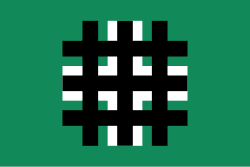Legion of Archangel Michael, Founded in 1927, Faced State Persecution in Romania
The Legion of Archangel Michael, a significant political movement in interwar Romania, was established in 1927 by Corneliu Zelea Codreanu. This organization, which drew inspiration from historical knightly orders, aimed to combat perceived internal threats to Romania while providing social support to its communities. However, the Legion faced severe repression from the Romanian state, particularly in the early 1930s, as its popularity surged among the populace.
Key Details
The Legion of Archangel Michael was deeply embedded in Orthodox Christianity, which served as the foundation for its values and principles. Founded by Corneliu Zelea Codreanu, the Legion quickly became the largest political movement in Romania during the interwar period. Its activities included both militant actions against political adversaries and charitable initiatives aimed at assisting the needy.
In 1933, the Romanian government attempted to suppress the Legion due to its increasing influence. This crackdown resulted in the deaths of 18 Legionaries and the arrest of thousands more, marking a significant episode of political persecution. Among those killed was Virgil Teodorescu, a student who was shot by police while distributing posters for the Legion. Another tragic incident involved Constantin Nița, who was shot while trying to deliver food to besieged Legionaries in a house surrounded by police.
In response to the government"s actions, the Iron Guard, which was established in 1930 as the paramilitary wing of the Legion, retaliated violently. The Iron Guard"s first major act of defiance occurred in 1933 when they assassinated the Romanian Prime Minister, who had ordered the crackdown on Legion members. Over the years, the Iron Guard faced opposition from various political factions, reflecting the turbulent political landscape of Romania at the time.
The Legion"s structure included "nests," which were semi-decentralized groups of Legionaries engaged in charitable work. Each nest comprised up to 13 members and operated within local communities, where they provided essential services such as building and repairing infrastructure, including roads, bridges, churches, and schools. They also established meal centers to distribute food to those in need, furthering their mission of social support.
During the Spanish Civil War, the Legion extended its influence beyond Romania by sending a contingent of fighters to support Spanish nationalists against communist forces, showcasing its commitment to anti-communism and international solidarity with like-minded groups.
Background
The Legion of Archangel Michael"s ideology was rooted in a blend of nationalism and religious fervor, reminiscent of medieval knightly orders that were established to protect pilgrims in the Holy Land. This historical parallel was significant in shaping the Legion"s identity and mission during a time of political instability in Romania.

Image for Legion of Archangel Michael, founded in 1927, faced state persecution in Romania
Impact
The legacy of the Legion of Archangel Michael is complex, marked by its dual role as both a charitable organization and a militant political movement. Its actions and the subsequent state repression highlight the intense political struggles in Romania during the interwar period. The Legion"s commitment to social welfare and its paramilitary activities reflect the broader themes of nationalism and resistance that characterized the era.
As previously reported, the political climate in Romania during the 1930s was fraught with tension, leading to violent confrontations between state authorities and various political factions. The Legion"s story serves as a reminder of the challenges faced by political movements that sought to navigate the turbulent waters of national identity and social responsibility amidst authoritarian repression.
For further insights into contemporary political dynamics, see our recent developments in political movements.







![[Video] Gunfire between Iraqi security forces and Sadr militias in Baghdad](/_next/image?url=%2Fapi%2Fimage%2Fthumbnails%2Fthumbnail-1768343508874-4redb-thumbnail.jpg&w=3840&q=75)
